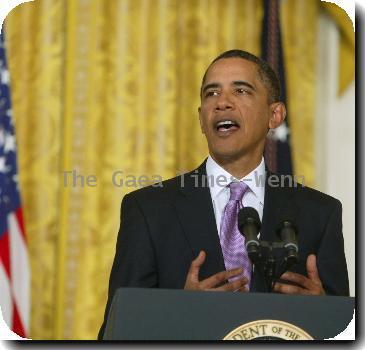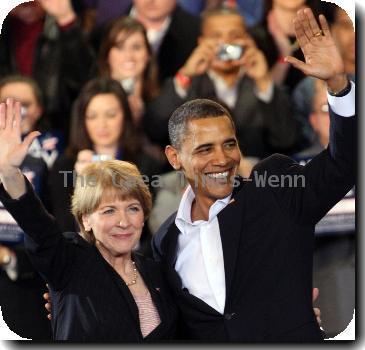US envoys’ Beijing visit aims to heal ties rocked by disputes over trade, Taiwan, Tibet
By Christopher Bodeen, APMonday, March 1, 2010
US envoys’ Beijing visit aims to heal ties
BEIJING — Top U.S. envoys were due in Beijing on Tuesday on a mission to patch up ties rocked by a flurry of disputes over trade, Taiwan and other sensitive issues.
Deputy Secretary of State James Steinberg and Senior White House Asia adviser Jeffrey Bader are expected to meet Chinese Foreign Minister Yang Jiechi and other leaders during the visit scheduled to run through Thursday.
The State Department said Steinberg would also discuss efforts to restart six-nation talks on ending North Korea’s nuclear programs, along with hoped-for Chinese support for a new round of sanctions against Iran.
“We’ve gone through a bit of a bumpy path here, and I think there’s an interest both within the United States and China to get back to business as usual as quickly as possible,” State Department spokesman P.J. Crowley said in Washington on Monday.
But China signaled Tuesday that it was not likely to respond to pressure from the United States to support proposed sanctions on Iran for its nuclear defiance.
“We call for resolution of the Iranian nuclear issue through diplomatic means,” Foreign Ministry spokesman Qin Gang told a news conference. “We believe there is still room for diplomatic efforts and believe the parties concerned should step up diplomatic efforts and push for progress in the dialogue and negotiations.”
Qin was responding when asked about comments Monday from Russian President Dmitry Medvedev that Moscow was ready to consider new sanctions on Iran.
Medvedev said he still hoped for a settlement with Iran on nuclear issues that would negate any need for a fourth set of U.N. Security Council sanctions. Still, his comments appeared to be the strongest sign to date that the Kremlin was prepared to drop traditional opposition to such penalties if Tehran remain obstinate.
China suspended military exchanges after Washington announced a $6.4 billion weapons package for Taiwan in January and has threatened to retaliate against U.S. aerospace firms involved in the deal.
Beijing protested again when President Barack Obama met at the White House with Tibet’s exiled leader the Dalai Lama, whom Beijing accuses of seeking independence for the Himalayan region.
Beijing has also lashed back angrily at Google’s announcement in January that its e-mail accounts were hacked from China and was reconsidering whether to keep filtering Chinese search results. Soon after, U.S. Secretary of State Hillary Rodham Clinton criticized the censorship of cyberspace, and China’s Foreign Ministry said her remarks damaged bilateral relations.
The new tensions join recurring friction over human rights and commerce, with U.S. critics accusing China of deliberately undervaluing its currency to boost its massive trade surplus. Meanwhile, Beijing last month charged Washington with abusing trade relief measures after U.S. regulators increased import duties on Chinese-made steel pipes.
Chinese foreign policy hawks have said such frictions should prompt Beijing to withhold cooperation on issues like climate change and punishing Tehran for its nuclear defiance. Beijing has already drawn flack for ruling out new sanctions against Iran, a major source of energy supplies for the booming Chinese economy.
Steinberg and Bader’s visit offers a chance to communicate face-to-face on those issues and “kind of refocus on the future,” Crowley told reporters.
While Beijing has said little other than to confirm the visit, Chinese officials and state media have recently sounded more conciliatory.
“We hope the friction will calm,” Premier Wen Jiabao said Saturday during a rare online question-and-answer session with the public.
Steinberg is regarded as positive and constructive on China-U.S. issues and should receive a sympathetic hearing, said Liu Jiangyong of the Institute of International Studies at Beijing’s Tsinghua University.
“President Obama has many important things that need to get done in the area of China-U.S. relations and progress will depend on the discernment and positions of his top officials,” Liu said.
Tags: Asia, Barack Obama, Beijing, China, District Of Columbia, East Asia, Foreign Policy, Greater China, Iran, Middle East, North America, Taiwan, Tehran, Tibet, United States




